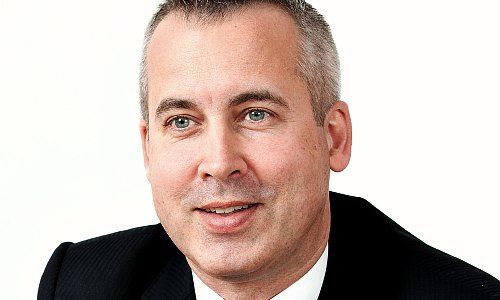More approachable and unafraid of posing impertinent questions. UBS is cultivating a new breed of bankers – to eventually replace a generation of stock- and bond-pickers being made redundant by technology.
The looming threat of digitization and new market entrants is changing private banks – even if only slowly. Digital attackers are cheaper, faster and less emotional at filling portfolios with the right stocks and bonds.
So private banks are seeking to gain ground with the bigger picture. Relationship managers are being told to stop burying their noses in product sheets, and to start listening to whatever clients are concerned about. Private banks now talk of holistic advice, a comprehensive view of client needs and long-term goals, instead of canned services picked off a shelf.
Taking the Wake-up Call Very Seriously
«We’re taking this wake-up call very seriously: we have to find a new way to add value for our clients,» Stephan Haessig, Zurich head of ultra-high net worth clients at UBS, told finews.asia in an interview at the bank’s headquarters in Zurich.
The language isn’t new, but the job profile is a dramatic change for a generation of private bankers, who are seeing their old roles, mainly making savvy stock and bond recommendations, disappear.
Roughly Midway Through
Haessig says the Swiss bank is roughly midway through a transformation that one-third of its advisor workforce probably won’t make it through. «I’m convinced that this is key to meeting the challenge posed by digital attackers in private banking,» he says.
«This» is a ten-step thematic program, including retirement planning, taxes, succession and even death, set up by the Zurich-based bank to discuss with clients.
Massive Impact
«It’s not a comprehensive model, but these ten are issues that upwards of 80 percent of our clientele have little knowledge of, yet they have a massive impact on financial decision-making,» Haessig says.
A simple example of «the more you know»: Switzerland’s law on protective services for children as well as adults changed recently. In cases where an individual can no longer make their own decisions, a national agency (KESB) will supersede the immediate family on making financial decisions. That is, unless the person has designated a decision-maker through a durable power of attorney.
Slow in Adapting
It is a water-is-wet moment: clients have more on their minds financially than short-term investment ideas. They often lack a sounding board for life’s overarching money issues, and their knowledge on how to tackle the bigger picture is spotty.
So why have banks been so slow in adapting to this need? The answer from Haessig, a 12-year UBS veteran private banker in Zurich, is refreshing: «The honest answer is, the industry had it too good because we were earning enough with investment advice.»
The Crux of Swiss Banking
Haessig hits a the crux of Swiss banking’s relationship with clients: firms have relied heavily on client transactions for profits for years. Digital upstarts are now eating their lunch, so private bankers have to find other ways to earn their keep.
Will the wealthy trust their private bankers enough to talk nitty-gritty personal details? Haessig is determined to have his advisors try.
Stop Hard-selling
He says UBS has actually relieved the private bankers in his Zurich team of responsibility for calling clients with specific investments ideas – which has until now been the heart and lungs of the job. The idea is to provoke a change by allowing the time and space for needed for deeper conversations.
«We have to stop hard-selling and start asking more exploring questions, from person to person – that makes it interesting!» Haessig says.
Another Two and a Half Years
In particular, Haessig is looking for bankers who can shift from being generalists and stock-pickers to those able to see the bigger picture. «Today, private bankers need to be able to connect different things, to analyze what happens in other areas when a change is made in a specific area,» he says.
Haessig estimates that his Zurich team has another two and a half years «until we can honestly say that we live and breath this process.» He allows that the bank also needs to rethink issues like fee structures to make it work.
A Truly International Theme
The long view for UBS is to cement ties to clients, and of course to be paid for its products and services. The Zurich test case is being watched as a test case for the larger private bank, run by Juerg Zeltner.
«The idea of populating a theme in order to add value for clients is certainly an international one, even if we can’t offer every service that we do in Switzerland,» Haessig adds.



























